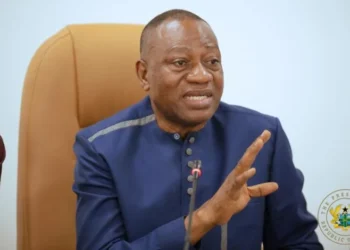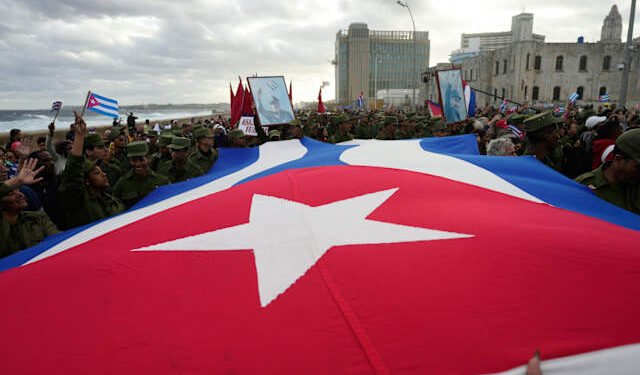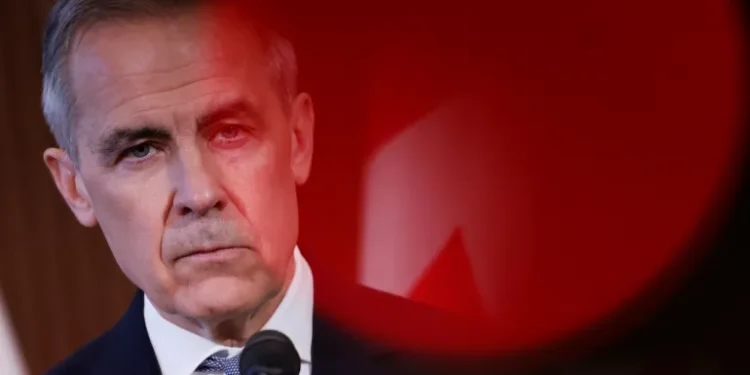The Bank of Ghana (BoG) has warned that the risk of inflation remains high as all the core inflation measures and inflation expectations are pointing to underlying inflationary pressures.
According to the BoG, it will take about a year for inflation to return to the target band of 8±2 percent.
“The latest forecast shows that inflation would likely remain above target in the near-term, driven by both external and domestic factors, and only return to target in about four-quarters ahead”.
BoG
At a press conference to climax the MPC’s 104th meetings, the Bank of Ghana highlighted that headline inflation has remained above the upper band of the medium-term target of 8±2 percent since September 2021 and currently stands at 12.6 percent as at December 2021.
The Bank of Ghana therefore, outlined some of the key risks to the inflation outlook including: rising crude oil prices and its transmission to ex-pump petroleum prices and transportation costs, rising global inflation, food price uncertainties, and the fiscal outlook.
The Monetary Policy Committee emphasized that it envisaged this scenario when it raised the policy rate in November 2021 to contain the inherent aggregate demand pressures likely to drive prices in the outlook.
Policy Responds
The Bank of Ghana which cited inflationary risks for the hike in the policy rate in November, stated that budget implementation for 2021 remained fairly in line with expectations. However, it noted that fiscal and debt sustainability concerns regarding the budget for 2022 and implications for sustained fiscal consolidation efforts have triggered an unfavourable credit rating decision by Fitch Ratings.
This, according to the BoG, has spilled over to the external sector and may further exacerbate the already elevated inflationary expectations. The BoG further highlighted that Ghana’s sovereign bond spreads have widened significantly and led to a de facto closure to the International Capital Markets with implications for financing of the budget.
“Fiscal policy has responded to these concerns with an announcement of a further 20 percent cut in expenditures in 2022. This fiscal policy measure will help to provide for some correction, avoid the opening up of macroeconomic imbalances, and further deepen the fiscal consolidation agenda.
“This should also shift the consolidation process away from a revenue-led one, to one which encapsulates both revenue and expenditure measures signalling stronger commitment to keeping the deficit under check”.
BoG
According to the BoG, a steadfast implementation of the proposed measures will be needed to safeguard stability, foster credibility and re-anchor inflation expectations. The expenditure cut has been well accepted in the bond markets and decisive implementation of this fiscal correction will significantly define the outlook and mitigate the rising risk premium, as debt stabilizes, the MPC stated.
BoG Holds Policy Rate at 14.5%
Meanwhile, the Monetary Policy Committee (MPC) of the Bank of Ghana (BoG) has decided to keep the policy rate unchanged at 14.5 percent after reviewing the development of the economy.
According to the MPC, the factors that led to the hike in the policy rate in its last meetings in November last year are yet to make a full impact on the economy and hence the need to keep the policy rate.
“The Committee is of the view that the dynamics associated with the November 2021 policy rate hike are yet to be fully transmitted and expects the decisive implementation of the fiscal correction measures, especially the 20 percent cut in expenditure to help moderate the upside risks to the inflation outlook.
“Under these circumstances, the Committee has decided to keep the policy rate unchanged at 14.5 percent”.
BoG
The Committee stated that it will continue to monitor the impact of these policy measures and as needed call an extraordinary meeting to re-assess the inflation outlook over the forecast horizon and take the necessary policy decisions accordingly.
On domestic growth conditions, the Committee assessed that the revised quarterly GDP growth numbers affirms the strength of the post-COVID recovery.
READ ALSO: Government Appoints Board Members for Development Bank Ghana























